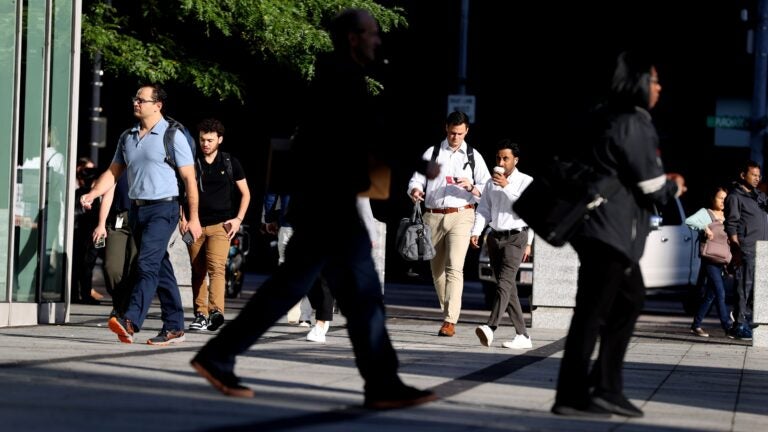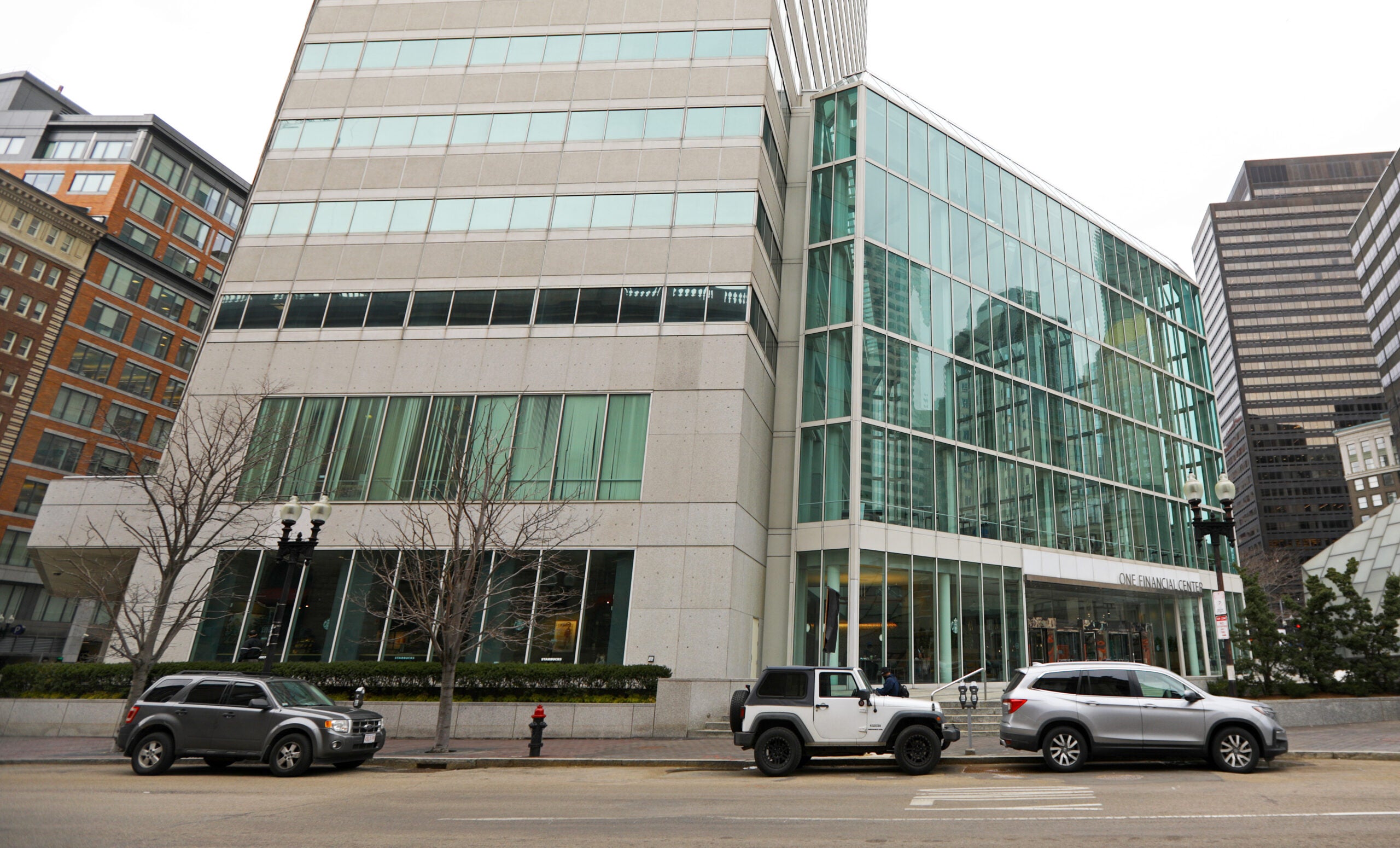The Boston Globe

Another Labor Day has come and gone, and with it, another wave of chatter about whether this is finally the autumn that office workers will be corralled back into their cubicles.
But as Boston’s largest employers continue to grapple with the post(ish)-pandemic return-to-office debate, many of them are acknowledging that this may be as back as they’ll ever be.
“I think most companies have resigned themselves to the fact that flexible work schedules are here to stay,” said Jim Rooney, president and CEO of the Greater Boston Chamber of Commerce. “Could I see a day when it’s viewed as better for the business, better for the employee, and better for society if people are getting up and going to work? Yeah, I can see that coming back — but it’s not going to happen in the short term.”
The one thing that Boston’s biggest companies seem to agree on is that, at least for workers who can do their jobs remotely, the traditional workweek of five days in the office could be gone for good. Taking its place? A patchwork of arrangements, ranging from the ultra-lax (work from home whenever you please) to the rigid (mandating butts-in-seats Monday through Thursday) to the middle-ground (come in two or three times a week, pretty please?)
“For us, it’s a, ‘if it ain’t broke, don’t fix it’ kind of model,’” said Greg Payne, vice president of corporate communications for Seaport-based software company PTC, which asks employees to come in two or three days a week, depending on their role.
It’s a pattern playing out nationwide as hybrid work — in various forms — seems to be winning out against both fully remote and fully on-site configurations. The latest data from the monthly US Survey of Working Arrangements and Attitudes indicates that in August, 50.5 percent of full-time workers whose jobs can be performed from home are working a mix of onsite and remote days — compared with 31.4 percent who are fully onsite and 18.2 percent who are fully remote — up from 46.8 percent a year ago.
Data from Kastle Systems, which tracks building entries in 10 cities nationwide (not including Boston), shows that Tuesdays, Wednesdays, and Thursdays have the highest occupancy rates.
Even giants like Google, Meta, and Amazon, all of which have large offices in Boston or Cambridge, are asking workers to come in only three days a week, despite making headlines with their stringent return-to-office policies.
Why not five days?
“I think that ship has sailed,” said JD Chesloff, president and CEO of the Massachusetts Business Roundtable. He is starting to hear about more local firms actively enforcing their hybrid policies by counting office attendance toward performance evaluations, but by and large, he said, “employers and employees are trying to meet in the middle and figure this out.”
To be sure, that middle is still a drastic shift from peak-COVID times, when fully remote operations rendered the Financial District a ghost town. But for companies, it’s still an adjustment.
Take ezCater, a corporate catering technology company. Before the pandemic, most workers reported daily to offices in either Boston or Denver, with just a handful of remote employees. Now, its 850 workers are free to choose when — or if — they work from either office. The setup has allowed the company to hire from around the country, with a workforce now spread across 40 states. EzCater downsized its footprint at 40 Water St. a bit in 2021, but otherwise, chief people and culture officer Janine Allo said, the status quo seems to be working.
“We have not had discussions to turn back in any way, and that is because our employees don’t want that,” Allo said. “Why force people to do anything? That doesn’t make sense to us.”
Indeed, the talent crunch is the among the biggest reasons hybrid work is persisting, employers and experts say. Workers — particularly women, people with disabilities, and other marginalized groups — continue to want flexibility, and the state’s tight labor market has compelled employers to continue to offer it in order to attract candidates and avoid turnover.

But hiring and retention aren’t the only factors. Like ezCater, several firms — including athenahealth, HubSpot, and Akamai Technologies — have downsized or subleased their offices, saving money on real estate costs. Others are loath to ask their workers to contend with Boston commutes unless absolutely necessary.
“The most obvious thing you’re trying to avoid is to have somebody come in, fight off 90 minutes round-trip traffic, so they can sit in a cube and stare at their monitor,” said Peter Church, chief people officer at Canton-based insurer Point32Health, where about three-quarters of its 4,400 employees come into the office one to three days a week, with individual departments coordinating what days these are. This ensures that “people are maximizing the time together,” Church said.
“I think about all of this the way we might think about certain health diets,” he said. “A one-size-fits-all is a very dangerous assumption.”
Of course, tech and tech-adjacent companies are particularly well suited to lean into the hybrid mindset, while other industries place more of a premium on face time. In Boston, financial services company State Street and law firm Weil, Gotshal & Manges have recently rolled out mandates of four days a week in-office — the more rigid end of the hybrid spectrum.
Law firm Ropes & Gray also recently announced its in-office cadence will grow to four days a week, adding Mondays to the Tuesday-through-Thursday rhythm that’s been in place since last year. Firm chair Julie Jones said three days a week just wasn’t cutting it anymore for the kind of hands-on learning and observation that the legal practice demands.
“I’ve got to keep people focused on the long game, the long game, the long game,” she said. “The disruption in the schedule, it is short term.”
But other traditional firms are learning to tweak convention. Mintz, another law practice, asks its approximately 650 Boston employees to come to the downtown office about 60 percent of the time on average.
“It’s an experiment,” said chief operating officer Jason McCord. “We picked a number out of thin air.”
For most employees, McCord said, this translates to the increasingly common Tuesday-Wednesday-Thursday schedule. But the framework still leaves room for employee choice. For example, a team in Washington, D.C., recently finished up back-to-back trials, when they spent 36 days straight in the office, “so my guess is their bank is full of time in the office,” McCord said.
“Is every single person in the firm complying? Probably not,” he said. “But are we, and have we been, headed in the right direction? Absolutely.”

But even after three-plus years, companies’ directions could still change. Rooney said firms may rethink their policies as office leases come due and they continue to assess their space needs. And many company leaders said they were continuing to keep a close eye on employee engagement.
That isn’t a problem, however, for Boston-based Eastern Bank, said Quincy Miller, vice chair and president of the lender, which completed both its IPO and its largest bank acquisition while fully remote earlier in the pandemic. The bank leaves hybrid work arrangements up to divisions for non-customer-facing employees. (Employees in customer-facing roles, such as tellers, make up nearly half the bank’s workforce. They now receive three extra personal days per year.)
“We are able to be just as productive, just as effective, while still being able to provide that flexibility to people’s personal lives,” said Miller, adding: “I don’t see anything on the horizon that we would change the policy.”
And Eastern isn’t alone. Many C-suite executives say they don’t envision a path back to the pre-pandemic workplace — and see no need to force the issue. At athenahealth, a health care software company that will soon ditch its longtime Watertown headquarters for digs one-third the size in Boston Landing in Brighton, departments also decide their own in-office schedules, said chief people officer Brittany Podolak. On an average day, the Watertown office has just over 35 percent occupancy.
While the company does value in-person time, “it’s all in the way you frame it,” Podolak said. She encourages leaders to set a specific collaborative agenda on days they ask employees to come into the office.
“It all comes down to, we want to have an engaged workforce,” she said. “This is where I just don’t know that mandates do that for you.”
